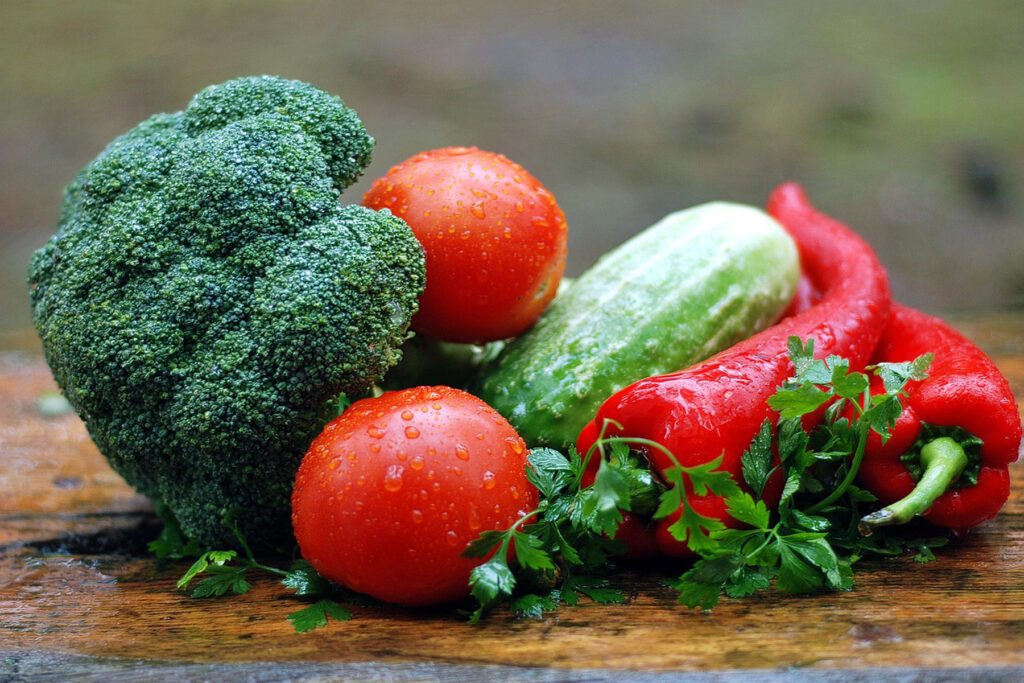
Imphal March 30 , 2024 Imphal By Banti Phurailatpam
Contents
Vegetarianism in 2024
Introduction:
In recent years, vegetarianism has surged in popularity as more individuals embrace plant-based diets for health, environmental, and ethical reasons. As we enter the year 2024, the trend towards vegetarianism continues to gain momentum, reshaping consumer preferences, food systems, and cultural norms worldwide. In this latest news article, we delve into the evolving landscape of vegetarianism in 2024, examining the drivers behind this movement and its implications for society, health, and the planet.
Rise of Plant-Based Eating:
- Health and Wellness Consciousness:
- With growing concerns over lifestyle-related diseases and the impact of diet on health, many individuals are turning to vegetarianism as a means of promoting overall well-being. Plant-based diets rich in fruits, vegetables, whole grains, and legumes are associated with numerous health benefits, including reduced risk of chronic conditions such as heart disease, diabetes, and certain cancers.
- Environmental Sustainability Concerns:
- The environmental impact of animal agriculture, including deforestation, greenhouse gas emissions, and water pollution, has prompted heightened awareness of the ecological benefits of plant-based eating. By reducing reliance on animal products, vegetarians contribute to lower carbon footprints and conservation efforts, supporting a more sustainable food system.
Cultural Shifts and Culinary Innovation:
- Mainstream Acceptance of Vegetarian Cuisine:
- Vegetarianism has transcended its niche status to become increasingly mainstream, with restaurants, food brands, and culinary influencers embracing plant-based ingredients and flavors. From meatless burgers and dairy-free alternatives to plant-based protein sources such as tofu and tempeh, vegetarian options abound in today’s food landscape, appealing to a diverse range of tastes and preferences.
- Creative Plant-Based Cooking:
- The rise of vegetarianism has sparked a renaissance in creative plant-based cooking, inspiring chefs and home cooks alike to experiment with innovative recipes and techniques. Plant-based ingredients such as jackfruit, seaweed, and nutritional yeast serve as versatile alternatives to traditional animal products, offering endless possibilities for culinary exploration and gastronomic delight.
Impact on Society and Global Food Systems:
- Economic Opportunities and Market Growth:
- The surge in vegetarianism has created economic opportunities for businesses operating in the plant-based food sector, driving innovation and investment in alternative protein sources and meat substitutes. From plant-based startups to established food conglomerates, companies are capitalizing on the growing demand for vegetarian products, fueling market growth and diversification.
- Cultural Shifts and Dietary Norms:
- As vegetarianism becomes increasingly prevalent, cultural norms surrounding food and dietary practices are evolving to accommodate diverse dietary preferences and choices. Restaurants, social gatherings, and food events are adapting to cater to vegetarians and vegans, offering inclusive menus and culinary experiences that reflect changing consumer attitudes towards food and sustainability.
Challenges and Opportunities Ahead:
- Nutritional Considerations and Dietary Diversity:
- While plant-based diets offer numerous health benefits, ensuring adequate nutrition and dietary diversity remains essential for vegetarians. Attention to nutrient balance, supplementation where necessary, and incorporation of a variety of plant foods are critical to supporting optimal health and well-being on a vegetarian diet.
- Addressing Food Insecurity and Accessibility:
- Despite the benefits of vegetarianism, disparities in food access and affordability persist, particularly in marginalized communities and low-income populations. Efforts to address food insecurity and improve access to nutritious plant-based foods are essential for promoting equitable and sustainable dietary practices for all.
Conclusion:
As vegetarianism gains traction in 2024, it emerges not only as a dietary choice but also as a symbol of broader societal shifts towards health, sustainability, and ethical consumption. By embracing plant-based lifestyles, individuals contribute to positive changes in personal health, environmental stewardship, and cultural attitudes towards food. As we navigate the opportunities and challenges of vegetarianism in the years ahead, let us continue to champion the principles of compassion, sustainability, and holistic well-being, fostering a more inclusive, resilient, and nourishing food future for generations to come.




